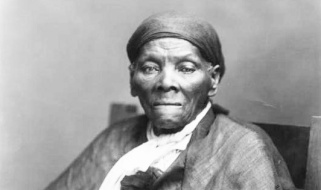
The renowned Civil War hero who saved thousands of slaves, Harriet Tubman is set to become the new face of the $20 bill. (Courtesy of Flickr)
By Katie Quinlisk
The announcement that Harriet Tubman will replace Andrew Jackson on the new $20 bill is certainly worth celebrating. Replacing the slave-owning and Native-American-murdering Jackson with Tubman, leader of the Underground Railroad, Civil War hero and suffragette, is hopeful evidence of American progress in the struggle for gender and racial equality.
However, something about Tubman’s face on the bill feels disingenuous. Putting a black woman’s face on the currency of a nation whose black women are so violently marginalized seems like a cheap and insincere placation — like giving the starving screaming baby of racial and gendered turmoil a pacifier and hoping it will just shut up already.
I am not discrediting or dismissing the value of Tubman on the $20 bill. Representation is important. We all want to live in a world where young black girls can grow up seeing a woman who fought for their freedom and voice. However, slapping Harriet Tubman’s face on the $20 bill is not enough. I am saying that it is okay to be unappeased by this gesture, and it is okay to demand more.
Race does finally rescue Tubman’s story from the children’s book report section and welcome her to the forefront of American history. Tubman makes George Washington’s contributions to American history seem modest. She led thousands of slaves to freedom through the Underground Railroad, Union boats into Confederate territory during the Civil War and segregated conventions for black women’s suffrage — all while suffering from a debilitating and undiagnosed disability.
Tubman’s $20 bill, though anything but undeserving, does not accurately represent the current state of American black women. Black women in America fight the race-war and gender-war every day. According to a recent study by the National Coalition on Black Civic Participation, black women are more likely to be victims of violent crimes, 2.5 times more likely to die while pregnant due to insufficient healthcare and six times more likely to be suspended from school than white female peers. Additionally, black women are consistently misrepresented in the mainstream media as uneducated, directionless, hyper-sexualized and promiscuous archetypes.
As movements such as Black Lives Matter rally for the justice of slain young black men, black women are left at the intersection of racism, sexism and classism without a voice.
There is still much work to be done. Harriet Tubman’s face on the new $20 bill recognizes her contribution to American history, but it does little to improve the situation of American black women today.
Harriet Tubman’s face on the $20 bill is a step in the right direction, but it is not enough and we cannot mistake this national recognition of one black woman as recognition of all black women. We need to celebrate this milestone in black female American history, while continuing to express our deep dissatisfaction. We need to relentlessly push, as well as ask the important questions: how are we going to improve black women’s healthcare? How are we going to prevent black women from being victimized? How are we going to change the way black women are portrayed in television and film? How are we going to give black women a unified voice?
The black female struggle is real, and putting Tubman on the $20 bill does very little for this struggle other than fooling us into thinking it no longer exists.
Katie Quinlisk, FCRH ‘18, is an English major from West Chester, Pennslyvania.
